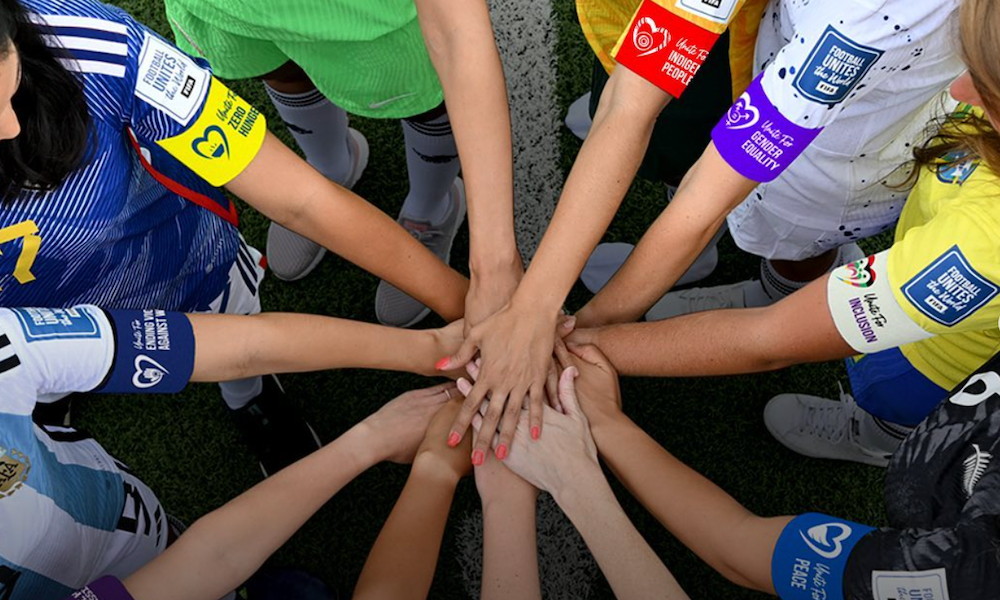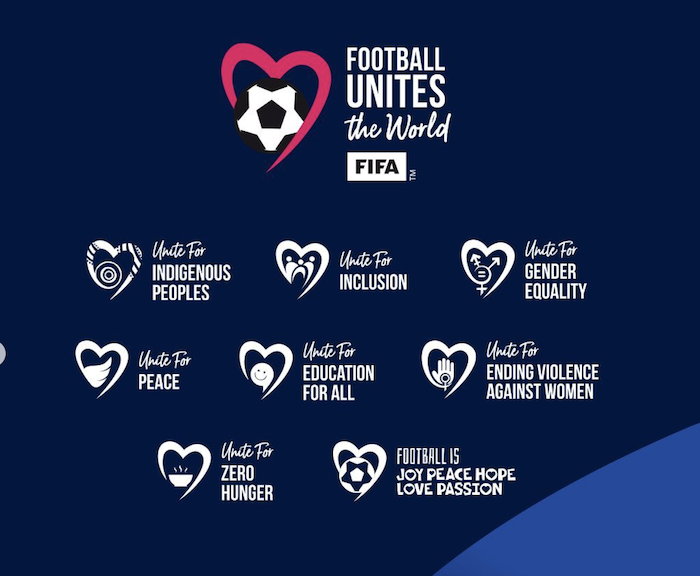
FIFA Unveil Unite Armbands for Women’s World Cup as Ban on One Love Armbands Continues
July 7, 2023
FIFA has teamed up with several United Nations agencies to highlight a range of social causes with new "Unite" armbands for the upcoming Women’s World Cup in Australia and New Zealand. The move comes after the governing body confirmed that the ban on the "OneLove" armband – which symbolizes LGBTQ+ solidarity and rights – that were part of the opening week of the men’s tournament in Qatar last year, remains.
During the 2022 Men's World Cup, when competing nations announced plans to wear the OneLove rainbow armband, FIFA threatened players with sanctions. This year, the body has released eight alternative armbands for players to wear instead – none of which are inclusive of LGBTQ+ rights exclusively.
Under its global campaign, 'Football Unites the World', eight specific messages - from gender equality to education to zero hunger - will be highlighted during the tournament which starts in 13 days. The Unite armband themes and causes were picked after consultation with the 32 participating teams, players and various UN agencies.
Its messages include Unite for Indigenous Peoples; Unite for Gender Equality; Unite for Education for All; Unite for Ending Violence Against Women; Unite for Peace; Football is Joy, Peace, Love, Hope and Passion, Unite for Zero Hunger and Unite for Inclusion. The inclusion armband colors represent race and heritage (red/black/green) and all gender identities and sexual orientations (pink/yellow/blue) - although this representation hasn’t been specified by FIFA.

The initiative intends to raise awareness of the selected issues and promote the causes at all 64 games during the tournament through messaging on advertising boards around the pitch, flags displayed on the field, screens within the stadium and social media. The federation has explained that players and teams are allowed to promote social causes of their choosing outside of the pitch, however on-pitch messages during the game will be punishable if they don’t sit within the FIFA regulations.
“[Football] has the unique power to bring people together and provide joy, excitement and passion. But football does even more than that – it can shine the spotlight on very important causes in our society,” said FIFA President Gianni Infantino.
The decision by FIFA to prohibit the rainbow OneLove armband again, despite the host countries' beliefs compared to last year, has sparked significant controversy and criticism. Advocates for LGBTQ+ rights argue that such bans undermine the importance of true inclusivity and send a negative message to the world. This has been voiced by England’s team, the Lionesses who had planned on wearing the armband but following the news are hopeful for a solution following conversations.
“One thing that is crucially missing is that there’s no official backing of a pro-LGBTQ+ stance. That is absolutely fascinating when you’ve got a tournament being played by a large proportion of players who are part of the LGBTQ+ community,” said Sky Sports News’ Anton Toloui. “Lots of people will be disappointed that this is not specifically set out in what FIFA are saying. It’s an issue which is going to anger some players, as is the freedom for players to choose how they represent a cause which means so much to them.”